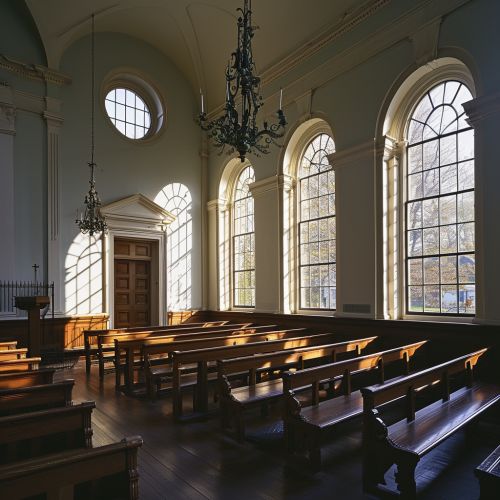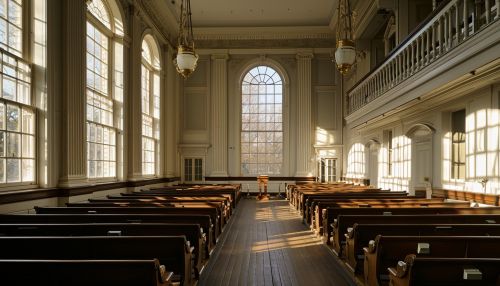Continental Congress
Origins and formation
The Continental Congress was a series of legislative bodies which met in the British American colonies and the newly declared United States just before, during, and after the American Revolution. The term "Continental Congress" most specifically refers to the First and Second Continental Congresses of 1774 and 1775–1781 respectively, and may also refer to the Congress of the Confederation of 1781–1789, which operated as the first national government of the United States until being replaced under the U.S. Constitution.
The Continental Congress was initially called together by the Committees of Correspondence, groups of local leaders that began meeting in the 1760s to discuss their common grievances against British rule. These meetings were a response to a series of measures imposed by the British government on the colonies, collectively known as the Intolerable Acts. The Congress was attended by 56 delegates from twelve of the Thirteen Colonies that would become the United States. The delegates included some of the leading figures of the period, such as George Washington, John Adams, and Thomas Jefferson.


First Continental Congress
The First Continental Congress met in Carpenter's Hall in Philadelphia, from September 5 to October 26, 1774. The meeting was called in response to the passage of the Coercive Acts, also known as the Intolerable Acts, by the British Parliament. The acts were intended to punish the colony of Massachusetts for the Boston Tea Party, but they were viewed by the colonists as a violation of their rights as Englishmen.
The Congress was attended by 56 delegates from twelve of the Thirteen Colonies. The Congress debated the issues for several weeks, but they were unable to agree on a unified approach to their grievances. However, they did agree to a boycott of British goods, known as the Continental Association, and they agreed to meet again the following year if their grievances were not addressed.
Second Continental Congress
The Second Continental Congress convened in Philadelphia in May 1775, shortly after the outbreak of the American Revolutionary War. The Congress established a Continental Army, with George Washington as its commander-in-chief, and it authorized the signing of the Declaration of Independence on July 4, 1776.
The Congress served as the de facto national government of what would become the United States, with the president of the Congress acting as head of state. The Congress negotiated treaties, directed the war effort, and dealt with financial matters. However, the Congress lacked the power to levy taxes, and it struggled to finance the war effort and manage the economy.
Congress of the Confederation
The Congress of the Confederation, also known as the Confederation Congress, was the successor to the Second Continental Congress. It was established by the Articles of Confederation, which were ratified by the states in 1781. The Congress of the Confederation continued to manage the war effort and negotiate treaties, but it was even more limited in its powers than the Second Continental Congress. It could not levy taxes or regulate commerce, and it had no executive or judicial branch.
The Congress of the Confederation was replaced by the United States Congress under the new U.S. Constitution in 1789.
Legacy
The Continental Congress played a crucial role in the early history of the United States. It was the first national legislative body in the country, and it established many of the institutions and practices that would continue under the U.S. Constitution. The Congress also played a key role in the American Revolutionary War, directing the war effort and negotiating the Treaty of Paris that ended the war.
While the Congress had its limitations, it was a crucial step in the development of the United States as a nation. Its actions and decisions laid the groundwork for the establishment of the United States as a sovereign and independent country.
